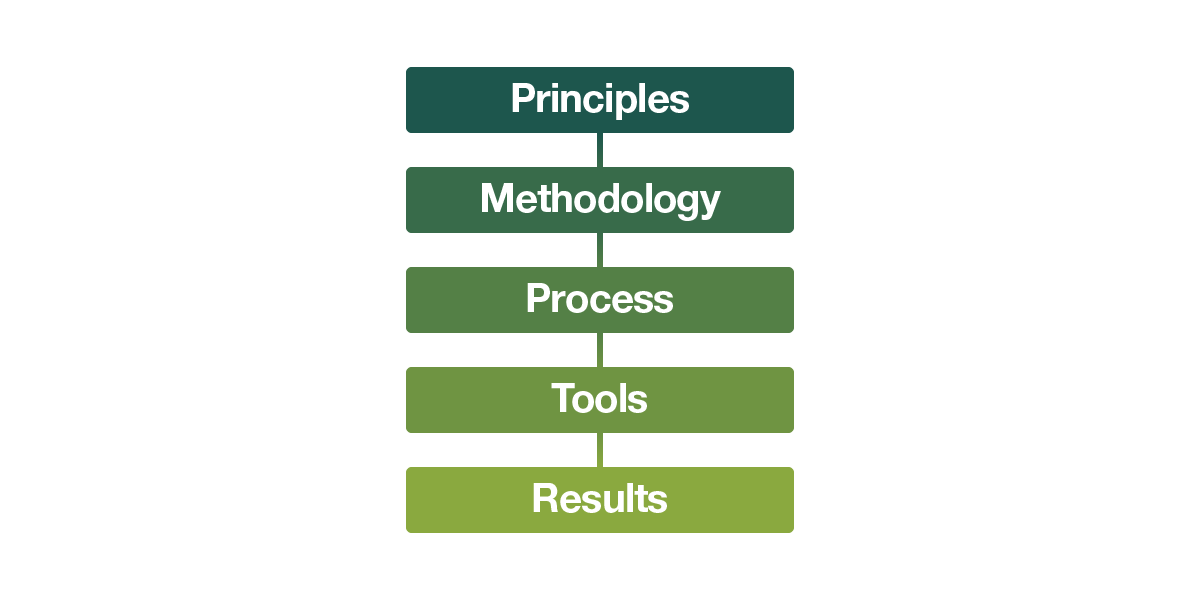Note: This article is part four in an ongoing series about mastery.
I have a friend who loves Leonard Bernstein’s Candide… and we’re still friends!
Okay, so Candide is magnificent in its way, but I’ve been slow—very slow—to warm up to it. The show’s music is as intricate and fresh as Bernstein’s earlier musical West Side Story. But without Stephen Sondheim’s lyrics and Jerome Robbins’ choreography—and shackled to Voltaire’s relentlessly episodic plot—the play often never fully takes flight. I’m one of those people who thinks of Candide as an “A for effort” musical like Chess that just doesn’t work.
As Seth Rudensky drily notes, the script is neither (all that) funny nor (all that) interesting, but the music is captivating, and so productions of Candide keep getting mounted. One of the score’s challenges is that it’s exceptionally difficult to sing, much of it more suited to the opera house than the Broadway stage. The late and legendary Barbara Cook could pull off eight performances of “Glitter and Be Gay” per week, but that combination of talent and stamina is beyond the reach of most mortals.
These days, most productions of Candide are at the opera house. And although I knew that, I still was pleasantly surprised and intrigued to see leading opera singer and teacher Joyce DiDonato recently coach a young tenor through the song—or rather, aria— “Candide’s Lament.”
This is an important melody that recurs throughout the play. It leads directly into the prismatic ending “Make Our Garden Grow” which, after “Glitter and Be Gay,” is the big moment that everyone is waiting for. The ending of Candide is thrilling, and for the big ending to work, this cri de coeur earlier in the show has to be touching and memorable.
The singer in the clip above comes from a musical theater background, and he makes a brave go of the piece. He’s done his work. He makes the song emotionally real and is courageous in showing tears and despair. He hits the notes and knows where he is, who he is, and what he is trying to say. But by opera standards, his performance is not successful.
DiDonato then coaches him into discovering how the piece can be performed with a continuous legato line, uninterrupted by consonants, pauses, or tears. In opera, the howl of despair can be conveyed to the audience purely through shimmering, sliding sound. As DiDonato says:
“That idea of the heart being poured out to her… It’s always this legato […] reach to her. And you’re going to reach to infinity to because she’s gone. So let the voice go to infinity with this.
The music is suffering here… You don’t have to do a lot… I am glad you make that choice and you make it committed, but play with what it feels like when you don’t do that, and you feel it, and you hold it, and the real tragedy is you can’t let go yet.”
For opera, learning to sing every note in a piece with a consistent legato is a key process to ensure a successful performance. In master classes online, you’ll see teachers like Lucas Meachem and Stephanie Blythe repeatedly stop their students (who already sound fantastic) to make sure that every note is legato and every note has vibrato.
Legato singing isn’t a principle. And it’s not a methodology (a flexible system of questions). It’s a process: it’s something you need to do. You literally have to do it phoneme by phoneme, and note by note.
Processes are executional and lead to predictable results.
Processes in practice
By necessity, all organizations are process-heavy. Work must be ritualized and codified into repeatable playbooks to ensure consistency and efficiency as organizations scale, as the complexity of the work scales, and as challenges scale.
Effective processes cannot be put in place without having clear principles or methodologies first. For example, performance review processes without defined values and behaviors—or daily scrum meetings without a commitment to agile development—will lead to chaos and tension.
If we find ourselves achieving the wrong goals (“achieving failure”), we probably have the wrong processes. Singing Candide in a musical theater style is a valid goal, but a different one than singing Candide in an operatic style. If we want to sing Candide at the opera hall, we have to have a process in place to make sure that every note shines. Joyce DiDonato upsets this one performer’s groove, but she helps him find a new groove that will lead to even better results.
Processes don’t make work easier. They make the *right* work easier.
Next article: Tools



Leave a Reply